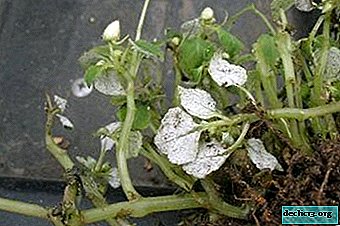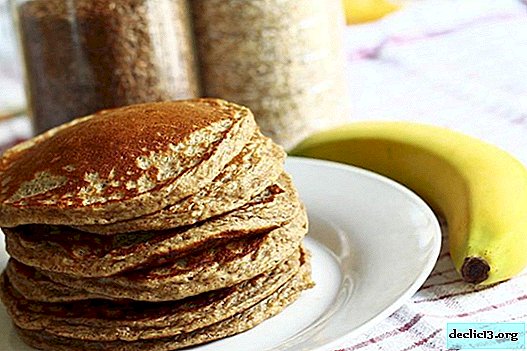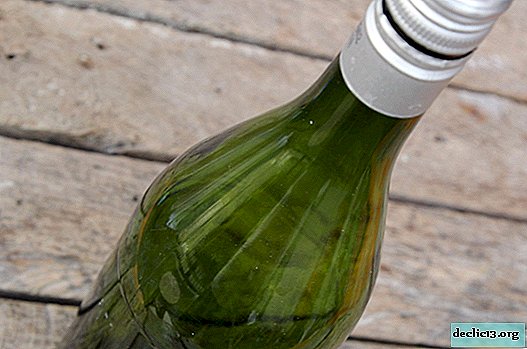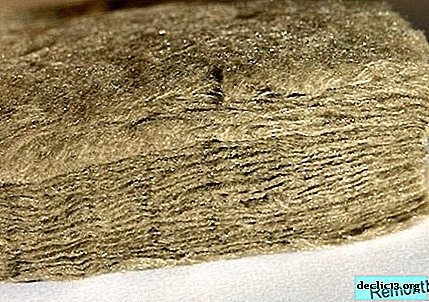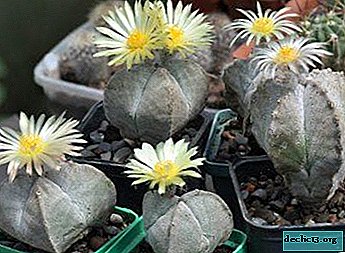How and how to treat laryngitis in children at home

In children, the immune system is not fully formed, so they often have infectious diseases of the upper respiratory tract. Usually the problem is faced by kids who just went to a preschool. In the article, we will consider how and how to treat laryngitis in children at home.
Regular viral diseases weaken local protection, resulting in recurrent or chronic pathologies. For example, during one cold season, laryngitis in children can appear several times.
How to help a baby with laryngitis, because at such a young age this disease is fraught with complications? Let's talk about the causes, symptoms, treatment and methods of preventing laryngitis - an unpleasant infectious disease. Let's start with the definition.
Laryngitis is a disease accompanied by inflammation of the mucous membrane of the larynx and vocal cords. The muscle and submucosal layers are also exposed to infection.
In children under 3 years of age is rare, but recently, the disease is sometimes diagnosed even in infants. This is due to the emergence of new strains of viruses and an increase in the frequency of allergic reactions.
The first symptoms of laryngitis in children
Infectious disease, which is discussed in the article, manifests itself in children with a number of non-specific and specific symptoms. The information below will help at the right time to determine the ailment and begin treatment.
- Hoarseness. With laryngitis, the lumen of the larynx narrows, and the vocal cords do not completely close. This leads to a change in the timbre of the children's voice.
- Cough. At the initial stage, children's laryngitis is accompanied by a dry, paroxysmal cough, which intensifies in the evening and at night and prevents sleep. Proper treatment in a few days starts the process of sputum separation, which indicates the beginning of recovery.
- A sore throat. Laryngitis in children is accompanied by a sore throat, the intensity of which in each individual case is different. One child has a tickle in the throat, and the second suffers from an unbearable burning sensation. Pain is worse when food is swallowed.
- Heat. In most cases, we are talking about subfebrile temperature. But in the case of a virus-induced inflammation of the larynx, the temperature often rises to 40 degrees.
- Dyspnea. With the disease, the larynx narrows, resulting in respiratory failure.
- Worsening well-being. The child is capricious, eats poorly, becomes lethargic and inactive.
I think that at this point you got an idea of the first symptoms of the disease. As you can see, the picture is unpleasant. I wonder why the disease appears.
Causes of laryngitis in a child
Medical practice shows that the development of childhood laryngitis is determined by constitutional, allergic, infectious and other factors. Consider the causes of this infectious disease in children.
- The appearance of laryngitis in a child is promoted by an allergy. The list of allergens is represented by animal hair, food, smells of paints and varnishes.
- Laryngitis also appears due to bacterial or viral infection in the respiratory tract. In this case, the baby is contagious.
- Laryngitis appears after the use of medications for the nose or throat in the form of a spray. A stroke of the jet leads to spasm. It is not surprising, because in children the tissues of the pharynx are loose and are characterized by an instant reaction.
- Often a spasm of the throat is the result of an emotional shock. This is due to the poor development of the children's nervous system.
- The list of causes of the onset of the disease also includes individual characteristics of the body, among which the presence of lymphatic-hypoplastic diathesis.
Among the common causes of laryngitis are high dustiness in the room, overstrain of the vocal cords, drinking hot drinks, and passive smoking.
Features of the treatment of acute laryngitis
Treatment of the disease in children is aimed at eliminating sore throat. The patient is not recommended to talk a lot. Since it is difficult for young children to explain that conversations worsen the situation, a game of silence helps.
Home treatment for laryngitis is carried out in accordance with the doctor's recommendations. Self-treatment is unacceptable. The use of medicines or folk remedies without the approval of a doctor will harm the emerging children's body.
With laryngitis, cold or hot dishes, sharp and salty treats are excluded from the diet. Such products irritate the sore throat, which is fraught with complications.
In addition to medications, auxiliary procedures are performed that help relieve swelling of the throat. We are talking about hot foot baths and alcohol compresses for the throat. Below we talk about this in more detail.
First aid for an attack of laryngitis in a child
If the child has an attack, call an ambulance. A child who has difficulty breathing has nothing to do at home. And before the doctors arrive, give the baby first aid. This will ease the torment.
- Do not panic and do not let the child get nervous. Crying, supplemented by emotional shock, will narrow the larynx and contribute to increased spasm.
- A warm alkaline drink will help relieve puffiness. Borjomi will do. If there is no alkaline water, make the solution yourself by dissolving a spoonful of soda in a liter of boiled water. Give the baby a spoon every 15 minutes. Do not give milk, coffee, juice or compote. These drinks have a lot of allergens.
- Make a steam bath. Take it to the bathtub, close the drain and open the hot water. The room will quickly fill up with steam. After 10 minutes in the steam room, the cough is moistened.
- Foot baths will help in this situation. After the procedure, wrap the legs and give warm water.
- If the room is dry, moisten. To do this, wash the floors, hang wet towels around the room, put a container of liquid.
- Use antihistamines to prevent an allergic reaction. Loratadine or Suprastin will do. No-shpa will help relieve spasm. When calculating the dosage, consider the age of the child.
- With a strong dry cough, a nebulizer with saline solution will help. If the temperature rises strongly, give an antipyretic.
This is enough to ease the suffering of the child before the doctors arrive. They know what to do in such a situation and will certainly help. Be patient.
How does doctor Komarovsky treat laryngitis in children
Komarovsky - the most famous of the doctors with great experience. When treating childhood laryngitis, he advises taking common sense as a basis. Parents should know what symptoms the disease has, how to treat it, and what inaction leads to. The doctor recommends focusing the treatment not on eliminating the cause of the disease, but on creating comfortable conditions that will contribute to the recovery of the child.
Practically all children face laryngitis. A viral infection causes the disease. As for the complications, they are deadly. But if parents know how to help the baby, this reduces the likelihood of severe violations.
In most cases, the symptoms of laryngitis appear in the daytime, and at night the baby's condition worsens. Komarovsky recommends a series of measures to prevent false croup.
- Antipyretics are used for treatment, including Ibuprofen or Paracetamol.
- To alleviate the condition, the patient is given sweet tea, a rosehip broth or compote.
- The room creates optimal conditions for recovery. In the summer, windows open in the house, humidify the air. Humidity in the room is brought up to 60%.
- To distract the child’s attention from an ailment, they read a book to him, carry away a game, include an animated film or give a set for drawing.
In these four points, the key to recovery is Komarovsky. According to the doctor, the symptoms of the disease have been studied well, and the cause of the complications is improper care. The doctor advises that the treatment be based on common sense and if signs of breathing appear, go to the hospital immediately.
Video info
Komarovsky is against the use of antiallergic drugs and antibiotics in the treatment of laryngitis, since in most cases a viral infection causes the problem. The doctor does not advise giving expectorants and steam inhalations, since such measures are fraught with deterioration and subsequent hospitalization.
How to treat laryngitis in children under 3 years and older than three

At the moment, there are no drugs that help to instantly eliminate the disease. In order to recover, a comprehensive treatment is carried out, involving the use of medications and traditional medicine. And to increase the effect, related procedures are performed.
Folk remedies
Doctors do not deny the effectiveness of folk remedies. Homemade medicines made from natural ingredients, used as a supplement, accelerate the healing process.
But before using any such tool, consultation with an otolaryngologist is required.And even if the doctor encouraged the folk remedy, it is recommended that the child be closely monitored, and, with the slightest deterioration, call an ambulance. Now consider the popular folk recipes used for laryngitis in children.
- Pumpkin Tortilla. A piece of pumpkin is peeled and passed through a coarse grater. In the pumpkin mass add rye flour and milk, knead a thick dough. Two lozenges are made from the resulting composition, placed on a double folded cloth and applied to the chest and neck. Warm and keep 2 hours.
- Sea buckthorn broth. A tablespoon of sea buckthorn berries is poured with two glasses of boiling water, boiled for 2 minutes and insisted for an hour under the lid. Give the child a spoonful 5 times a day or use it to gargle thrice three times a day.
- Onion compress. The onion is finely chopped, spread in a gauze bag and suspended over boiling water in a saucepan. After heating, a bag of onions is applied to the child’s neck. It is important that the compress warms, not burns.
- Carrot juice and milk. Fresh carrot juice is mixed in equal amounts with warm milk and given at least 5 times a day. The dosage for children under two years old is equal to a teaspoon, and older children are given a tablespoon.
- Cranberries and honey. Cranberries are poured over with hot water, spread in cheesecloth and squeezed juice. Half a glass of juice is mixed with the same amount of honey and given a small spoon every half an hour throughout the day.
- Gargling. With children's laryngitis, rinses of violet, chamomile, or linden blossom are used to rinse. A spoonful of raw materials is poured with two glasses of boiling water and insisted for 2 hours. Warm infusion is recommended to gargle up to 6 times a day. At the end of the procedure, the child should not drink at least half an hour.
- Inhalation. Steam inhalations soften the mucous membrane and make breathing free. The solution used is a mineral water without gas, a solution consisting of water and a few drops of eucalyptus oil. The procedure is carried out 3 times a day for 15 minutes.
- Foot baths. The procedure is most effective at the initial stage of the disease. The child's legs are lowered into a basin with water heated to 40 degrees for 20 minutes. After the procedure, warm socks are put on the child and laid in a crib.
- Peace. If the symptoms of the disease manifest themselves, it is recommended not to talk, because during the conversation the larynx along with the vocal cords are strained. When treating an ailment, rest is required.
Using folk remedies to combat laryngitis at home, be careful. Means, including milk, honey, lemon, sage and St. John's wort, can cause allergies, which is fraught with the appearance of a dangerous swelling of the throat mucosa. These products can not be used in the treatment of the disease in a child younger than three years. Older children are given small doses.
Pharmacy products
For the treatment of childhood laryngitis, medications prescribed by a doctor are used. The use of pharmacy products is unacceptable at will. Medicines prescribed by doctors are divided into six types.
- Antihistamines. Medications are good for calming and relieving swelling. Among these drugs are Zodak, Tsetrin, Parlazin and others.
- Expectorant. Pharmacies offer expectorants in assortment, but only the doctor can choose the best option. The drugs soothe the larynx, eliminate a fit of coughing and help to fall asleep. Before going to bed, the child is given Libexin or Sinecode. In the case of a wet cough, Bronchosan or Alteyka is prescribed.
- Absorbable. A list of the most effective remedies to help eliminate swelling of the throat is presented by Strepsils, Faringosept and Stopangin.
- Rinse. Among the medications used to rinse the throat, Evkar and Ingafitol are most often used.
- Antipyretic. They come to the rescue when the temperature rises above 38 degrees. In this case, the doctor prescribes Paracetamol, Efferalgan or Panadol. There was also use with non-steroidal anti-inflammatory drugs like Ibufen.
- Physiotherapy. Used in a severe case after the baby is admitted to the hospital. The doctor usually prescribes microwave therapy, ultraviolet radiation, or laryngeal electrophoresis.
As for antibiotics, their use in the disease is not always justified. Such drugs are used if the disease is caused by a bacterial infection or intoxication of the body is observed. Antibiotics are often used as a measure to help prevent complications.
Bacteria rarely cause laryngitis. Often the pathogen is an infection. Therefore, antibiotic treatment is ineffective. But if their use is justified, the doctor prescribes Augmentin, Suprax, Fartum or Azitroks.
How not to get laryngitis

Remember, laryngitis is a disease that must be cured completely. Otherwise, the disease will turn into a chronic form. As a result, all associated factors will lead to inflammation of the larynx.
Fortunately, there are several general rules of prevention, the observance of which helps protect the child from the disease.
- Do not allow the baby to communicate with children with laryngitis or often appear in crowded places.
- Make sure that children's clothing is appropriate for the season. Hypothermia is fraught not only with laryngitis, but also with other diseases.
- Maintain a healthy microclimate in your home. In the children's room, the air should be humidified and clean.
- Temper the child. More often go out for a walk with your child and make friends with the contrast shower technique.
- Try to have fresh vegetables and fruits in the baby’s diet. They will help to heal the body and strengthen the immune system.
Laryngitis in childhood is a common occurrence. In one case, serious treatment cannot be dispensed with, and in the second, the problem is solved by distracting therapy supplemented by inhalation. Only a doctor can choose a medicine.
Keep an eye on your baby to avoid general diagnosis and over-therapy. If the condition worsens, consult a doctor. In the case of a baby or a one-year-old baby, it is better to call an ambulance.
In childhood, the disease is incredibly dangerous. Among the complications are laryngeal stenosis.Without treatment, this emergency condition will lead to death. Do not treat on your own, listen to the recommendations of doctors, take vaccinations, because only the right actions of parents provide babies with good health.



